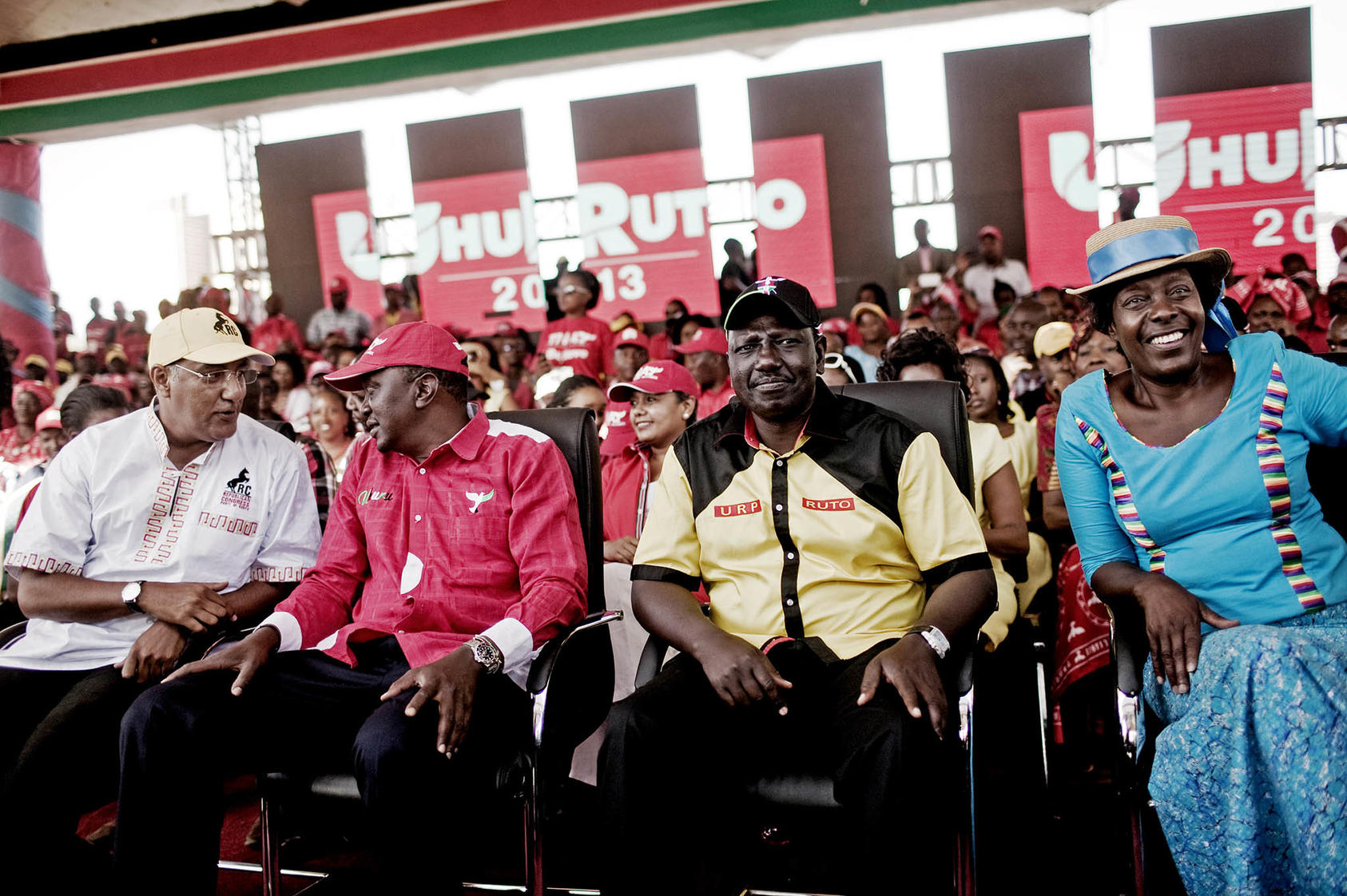What’s Next for Kenya After William Ruto’s Presidential Victory?
While Kenya faces a dire economic situation, Ruto’s biggest challenge may be overcoming the country’s legacy of ethnic politics.
William Ruto’s emergence as Kenya’s fifth president represents a paradigm shift in the country’s politics. Ruto’s campaign was comprised of a mass movement of workers, the jobless, peasants and other “hustlers” and sought to distance itself from the dynasties that have long run Kenya’s politics. While Ruto was born in a small rural village in the Rift Valley, his opponent, Raila Odinga, is a former prime minister and the son of the country’s first vice president. Marginalized Kenyans see Ruto as the personification of a transformational agenda that centers their plight, defining a contest between hustlers and dynasties. While Kenya faces a dire economic situation, Ruto’s biggest challenge may be overcoming the country’s legacy of ethnic politics and building national cohesion.

Since independence in 1963, ethnicity has been a central feature of Kenya’s politics, as the country’s elites failed to rise above colonial legacies of ethnic bigotry. This goes all the way back to a struggle for political power between Jomo Kenyatta, Kenya’s first president and an ethnic Kikuyu, and Oginga Odinga, its first vice president and an ethnic Luo. Decades later, tensions among some of the country’s major ethnic groups — the Kikuyus, Luhya, Kalenjis and Luos — persist and continue to define Kenya’s politics. Ruto’s candidacy and subsequent triumph in the 2022 presidential elections should help put issues like class politics, economic empowerment and equality of opportunity at the foreground of Kenya’s politics.
The inability of successive Kenyan presidents to effectively manage the country’s diversity and resolve historical injustices culminated in unprecedented post-election violence in 2007-08, resulting in the death of over 1,000 people and the displacement of 350,000. Following the 2017 elections, the country witnessed yet another bout of post-election violence that culminated in the 12 dead and 100 injured.
Perhaps the biggest success of the 2022 elections is Kenyans demonstrated commitment to move past the country’s history of electoral violence. This commitment was further bolstered by Ruto’s and Odinga’s posture toward elections free from violence. Their campaigns were conducted in a way that made it easy for the people to eschew violence, defying the widely held expectations that violent conflict and turmoil might erupt. Indeed, the success of the elections presents Kenya as a model for other African countries to emulate, as peaceful elections serve as a force multiplier toward national cohesion.
With the reaffirmation of his victory by the supreme court, the task before Ruto is primarily one of uniting Kenya, which he rightly captured in his speech after the verdict. Odinga’s employment of nonviolent, legal means to challenge the results of the presidential elections represents a major contribution to a peaceful democratic transition in Kenya. Ruto should reciprocate by working to enhance diversity, equity and inclusion regardless of ethnicity, class gender, and religious and political inclinations. Indeed, the name of his political coalition — “Kenya Kwanza” or “One Kenya” — provides just the right message. Reaching out to Odinga and his supporters will go a long way toward building a functioning democratic, prosperous and united Kenya. Above all, Ruto should demonstrate a strong sense of justice and an abiding fidelity to the rule of law.
The concluding stanza of Kenya’ national anthem provides a roadmap:
"Let all with one accord
In common bond united
Build this our nation together
And the glory of Kenya
The fruit of our labor
Fill every heart with."
The realization of this ideal rests principally on a strong social compact between Ruto’s government and the Kenyan people.
Chris Kwaja is research and strategy officer for USIP in Nigeria. He also lectures at the Centre for Peace and Security Studie at Modibbo Adama University in Nigeria.



